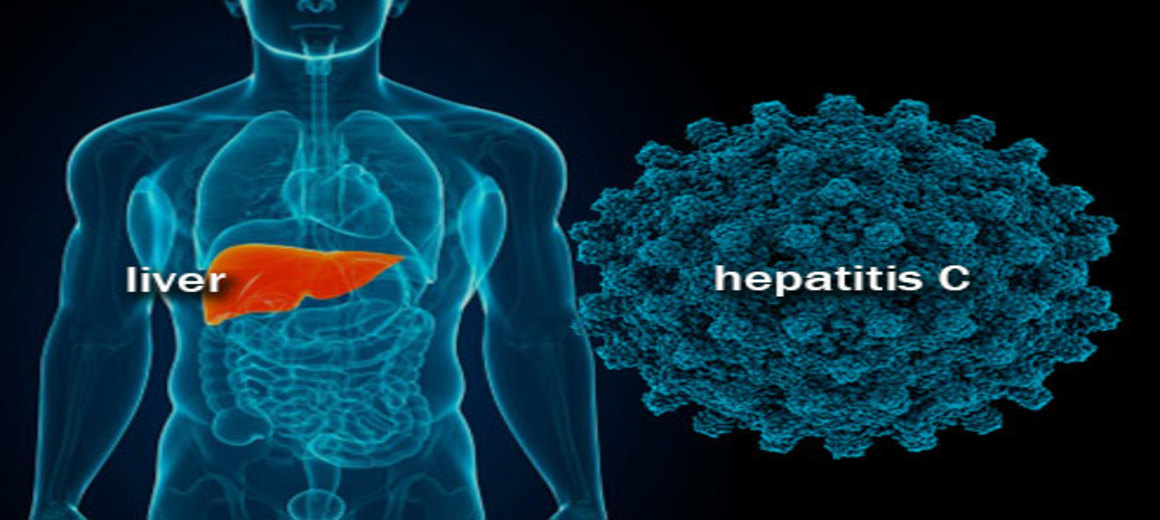
What is Hepatitis C ?
Hepatitis C is a viral infection that usually causes chronic liver inflammation leading to serious liver damage. The hepatitis C virus (HCV) spreads through contaminated blood, contaminated syringe & unprotected sex. Can also rarely be transmitted from mother to foetus during delivery.
Most people with HCV don’t know they’re infected, mainly because they have no symptoms, which can take decades to appear.
Untreated chronic hepatitis C increases your risk of developing cirrhosis — a condition that causes permanent scarring of the liver, liver failure or liver cancer.
Chronic hepatitis C is usually a “silent” infection for many years, until the virus damages the liver enough to cause the signs and symptoms of liver disease. Among these signs and symptoms are:
Bleeding easily, Bruising easily, Fatigue, Poor appetite, Yellow discoloration of the skin and eyes (jaundice), Dark-colored urine, Itchy skin, Fluid buildup in your abdomen (ascites), Swelling in your legs, Weight loss, Confusion, drowsiness and slurred speech (hepatic encephalopathy), Spider-like blood vessels on your skin (spider angiomas).
Every chronic hepatitis C infection starts with an acute phase. Acute hepatitis C usually goes undiagnosed because it rarely causes symptoms. When signs and symptoms are present they may include jaundice, along with fatigue, nausea, fever and muscle aches. Acute symptoms appear one to three months after exposure to the virus and last two weeks to three months.
Acute hepatitis C infection doesn’t always become chronic. Some people clear HCV from their bodies after the acute phase, an outcome known as spontaneous viral clearance.
Factors that increase the risk of Hepatitis C
Are a health care worker who has been exposed to infected blood, which may happen if an infected needle pierces your skin
1.Iv drug abusers
2.Have HIV
3.Piercing or tattoo in an unclean environment using unsterile equipment
4.Blood transfusion or organ transplant
5.Hemodialysis
What types of tests are needed to evaluate Hepatitis C ?
1.Several blood tests are performed to test for HCV infection.
2.LFT
3.Viral serology including viral load & genotype • Ultra sonography
What steps to be taken to reduce the risk of passing Hepatitis C to others ?
1.Practice safe sex
2.Don’t share razors or toothbrushes.
3.Don’t donate blood, body organs or semen.
4.Stop drinking alcohol
5.Avoid medications that may cause liver damage, Stop Self medication.
General dietary advice
1.Eat regular & balanced meals.
2.Maintain healthy calorie intake.
1.Eat whole-grain cereals, breads, and grains.
2.ink enough fluids
3.Eat lots of fruits and vegetables.
4.Get adequate protein.
5.Avoid fatty, salty, and sugary foods
6.Drink enough fluids
FAQs
How is Viral Hepatitis transmitted?
The hepatitis C viruses are generally transmitted by contact with infected blood or blood products, or by sexual contact. Hepatitis C is commonly transmitted sexually as well as through intravenous drug use, and can also be passed from a mother to her fetus, usually at the time of delivery.
I heard that some medications such as herbal medications can cure Hepatitis. Is this true?
There is currently no evidence that any herbal medicines can cure viral hepatitis. One should never use any prescription or over-the-counter medications without consulting a physician first. Additionally, some herbal medications may seriously damage the liver.
Can patients with Hepatitis C drink alcohol?
Regular alcohol intake has been shown to lead to increased liver damage in patients who have hepatitis C. HCV-positive persons should be advised to avoid alcohol because it can accelerate liver damage and progression to complications from cirrhosis.
Should pregnant women be routinely tested for Hepatitis C?
Yes.
